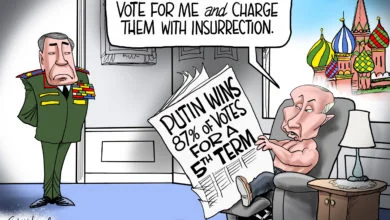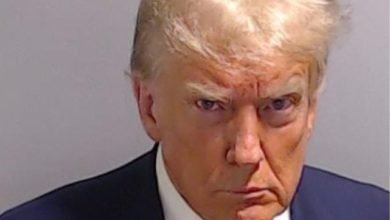House COVID Committee Confirms What We Have Long Suspected — The Feds Really Hate Transparency

Last week details emerged from the House Select Subcommittee on the Coronavirus Pandemic, confirming what government transparency advocates long suspected: Federal bureaucrats are purposefully stonewalling the American people’s right to know about their government.
Republican Kentucky Rep. James Comer, who chairs the full House Oversight and Accountability Committee, read from an email that Dr. David Morens, a top aide to Dr. Anthony Fauci, sent claiming that a staffer inside the National Institutes of Health (NIH) had shown him how to erase records requested by the public.
He was corresponding with Peter Daszak, president of EcoHealth Alliance, the organization that used tax dollars to fund controversial gain-of-function research in Wuhan, where the COVID outbreak began. The Department of Health and Human Services has since suspended funding of EcoHealth Alliance.
Morens wrote: “I learned from our FOIA (Freedom of Information Act) lady here how to make emails disappear after I am FOIA’d, but before the search starts. So, I think we are all safe. Plus, I deleted most of those earlier emails after sending them to Gmail.”
The implications for government transparency are enormous. How often do NIH staffers conceal what they do with our tax dollars? Why did a FOIA officer feel empowered to assist subjects of FOIA requests? How else do FOIA offers interfere with these requests? Has this behavior spread to the Centers for Disease Control and other agencies?
Our auditors at OpenTheBooks.com can speak to the problem. We have spent years — and gone to court — to force NIH to reveal the royalties paid to government scientists through medical innovation licensing.
When Americans are considering a drug or therapeutic recommended by public health officials, they deserve to understand all the financial stakes at play. Were any decision makers receiving payments? Were they continuing more lucrative research at the expense of other public health solutions?
For many, the question looming largest has been whether the relentless COVID vaccine push was driven by a potential windfall for NIH and certain scientists there.
When we first filed a FOIA, the agency ignored us and then refused to release the information.
After suing, NIH was required to release the information and began doing so incrementally due to the high volume of data. Tallied from 2009 through 2020, it amounted to an enormous sum–over $325 million paid by private companies to NIH and its scientists over 56,000 transactions.
Previously, we’d also discovered that Dr. Fauci, the face of the nation’s COVID response, was the highest compensated bureaucrat in the country. He out-earned President Biden. He out-earned his own boss, then-Acting NIH Director Lawrence Tabak.
Along with Fauci, who scoffed at concerns about royalty payments, Tabak faced questions from Congress.
In a March 2023 budget hearing, Rep. John Moolenaar told Tabak an obvious truth: every single, secret royalty payment represents a potential conflict of interest.
“To me, one of the biggest concerns people had during this last couple years is: Were they getting truthful information from their government? Could they trust what people were saying about the medicines? To me, that creates a very disturbing appearance.”
“The idea that people were getting a financial benefit from certain research that was done and grants that were awarded, that to me is the height of the appearance of a conflict of interest,” Moolenaar concluded.
The lawmaker urged NIH to make the money trail more transparent.
It was Tabak in the hot seat again last week, as Comer recited Morens’ outrageous email message.
Was the behavior he described consistent with NIH policy, Comer asked? “It is not,” Tabak responded flatly.
Did the FOIA team at NIH help its colleagues avoid transparency? “I certainly hope not,” Tabak offered.
Hope doesn’t suffice in this situation. It demands that lawmakers strengthen transparency law, update it for the 21st century and create some consequences for bad actors.
There are a few primary ways bureaucrats and decisionmakers violate the spirit of the law.
First, they overuse a series of exemptions designed to protect national security secrets or privacy laws. Too much is omitted through these exceptions; the American people deserve the full truth.
When documents are produced, they’re too often rendered useless through excessive redactions. We’re still fighting in real time to get more pieces of the royalty puzzle revealed.
Next, unreasonable delays are blamed on staffing levels, while many FOIA-related roles sit open. Agencies must prioritize filling those seats and Congress should appropriate more of them as needed.
Finally, we have the behavior Morens describes. A post facto effort to simply abscond with the information. It’s not just a policy violation but an affront to the spirit of the Freedom of Information Act. What consequences do these staffers ever truly face?
Until we get serious about protecting transparency, “FOIA lady” will be a duly anonymous symbol of what many have suspected: government employees hustling to cover their tracks.
Adam Andrzejewski is founder & CEO of OpenTheBooks.com, the nation’s largest private database of public spending.
The views and opinions expressed in this commentary are those of the author and do not reflect the official position of the Daily Caller News Foundation.
Content created by The Daily Caller News Foundation is available without charge to any eligible news publisher that can provide a large audience. For licensing opportunities of our original content, please contact licensing@dailycallernewsfoundation.org
Agree/Disagree with the author(s)? Let them know in the comments below and be heard by 10’s of thousands of CDN readers each day!




